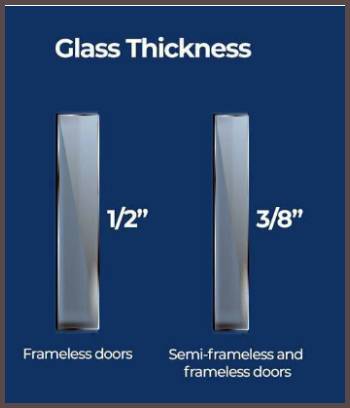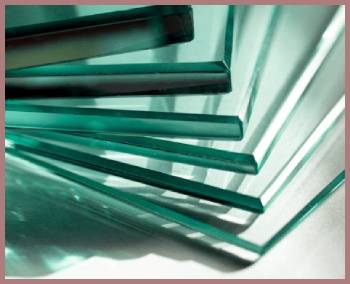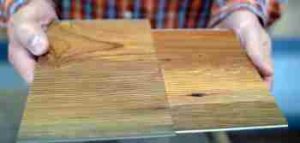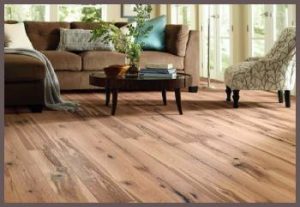Renovating a bathroom can often feel like navigating a maze of decisions – materials, colors, patterns, and the seemingly simple yet crucial question: what thickness should the shower glass door be? Today, we’re going to unravel this intricate tapestry by discussing the difference between 3/8 and 1/2 glass shower doors.
We’ll delve into the pros and cons of each and help you make the best decision for your shower kingdom.
A Brief Comparison Table
| 3/8 Inch Glass Shower Door | 1/2 Inch Glass Shower Door | |
| Thickness | 3/8 inch (approx 10mm) | 1/2 inch (approx 12mm) |
| Durability | Moderate, susceptible to damage | High, resistant to damage |
| Weight | Light, easier to handle and install | Heavy, may require additional support |
| Cost | More affordable | More expensive due to additional glass |
| Aesthetic Feel | Sleek, modern | Luxurious, substantial |
| Best for | Smaller enclosures, budget-friendly renovations | Larger enclosures, luxury renovations |
I hope this comparison table offers a clear visual differentiation between the 3/8 and 1/2 inch glass shower doors.

Section 1: Understanding the Basics of Shower Glass Thickness
Let’s start by understanding what the fuss is all about. 3/8 and 1/2 inch thicknesses are the standard choices when it comes to frameless glass shower doors. To put things in perspective, 3/8 inch equals about 10mm, while 1/2 inch translates to roughly 12mm. This small difference can impact durability, cost, and aesthetics, which makes your decision pivotal.
Section 2: The Pros and Cons of 3/8 Glass Shower Doors
3/8 Glass Shower Door: The Lightweight Champion
The 3/8 shower glass is widely recognized for its lightweight nature. Being thinner, it’s easier to handle, install, and align, making it a favorite among contractors. Plus, its slim profile lends a sleek, modern look to your bathroom that screams elegance.
But Nothing is Perfect
While the 3/8 glass shower door holds its weight in many respects, it’s not without some drawbacks. The most obvious is its susceptibility to damage. It’s more likely to chip, crack, or even shatter if hit with enough force, which means you’ll have to be a bit more careful around it.
Plus, if your shower enclosure is particularly large, a 3/8 door might not provide enough structural support, necessitating the need for additional hardware.
Also Read: Showerguard Glass Reviews

Section 3: The Pros and Cons of 1/2 Glass Shower Doors
1/2 Glass Shower Door: The Durable Beast
On the other side of the ring, we have the 1/2 glass shower door. This thicker option is a heavy-duty contender in the world of shower doors. It’s exceptionally durable and provides greater structural integrity, making it a great choice for larger enclosures.
Plus, the extra thickness gives it a luxurious, substantial feel that screams high-end design.
However, It’s Not All Sunshine and Rainbows
The 1/2 glass shower door also has its downsides. First and foremost, its heavy nature can make installation a challenge. It may require additional support, including sturdier hardware or even structural modifications to your bathroom.
Moreover, the increased material cost makes it more expensive than its 3/8 counterpart.
Section 4: Analyzing the Difference
After reviewing the pros and cons, it’s clear that the choice between 3/8 and 1/2 glass shower doors depends on several factors, including your budget, bathroom size, design preference, and installation complexity. The 3/8 door offers an elegant, lightweight solution, while the 1/2 door is a sturdy, luxurious option.
Frequently Asked Questions (FAQs)
The primary difference lies in their thickness and, consequently, their durability and cost. 1/2 inch shower glass is thicker and hence more robust but also more expensive and harder to install than the 3/8 inch option.
Either 3/8 or 1/2 inch thickness is ideal for shower doors. The choice depends on several factors, such as the size of the shower enclosure, your budget, the desired aesthetic, and how much structural support your bathroom can offer.
Absolutely. The 3/8 glass shower door is a widely used standard in the industry. While it’s not as durable as the 1/2 inch, it’s typically strong enough for most shower enclosures and is a popular choice due to its affordability and easier installation.
The thickness of a frameless shower door usually falls within the 3/8 to 1/2 inch range. The choice depends on your preference for durability, cost, and aesthetics.
Standard frameless glass showers typically range in width from 22 to 36 inches and in height from 72 to 84 inches. However, the size can be customized based on your bathroom layout and personal preference.
The standard glass sizes for showers generally fall between 22 to 36 inches in width and 72 to 84 inches in height. The thickness usually sits within the 3/8 to 1/2 inch range.
Also Read: OEM Glass Vs. Safelite Windshields
Section 5: Comparing to Close Competitors
It’s essential to note that the 3/8 and 1/2 inch shower doors do have their competitors. For instance, the 1/4 inch glass shower door is a thinner, more economical option. However, it’s not as sturdy and requires a frame for support, unlike the 3/8 and 1/2 inch doors which can be frameless.
In the realm of luxury, we find the 5/8 inch glass door. It’s the thickest and most durable option, offering unparalleled strength and a truly opulent feel.
However, its hefty price tag and the complexities surrounding its installation might not make it suitable for all bathrooms or budgets.
Wrapping Things Up
So, as we wrap up, remember that the choice of your shower door thickness ultimately depends on your specific needs and preferences. Whether you lean towards the lightweight champion (3/8) or the durable beast (1/2), know that you’re investing in the aesthetic appeal and functionality of your bathroom.
Just weigh the pros and cons, and let your shower door make a statement about your style.



